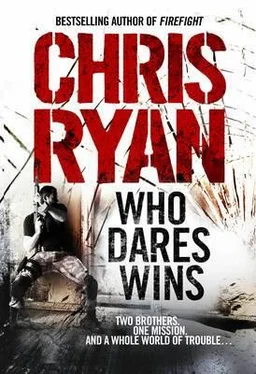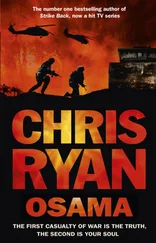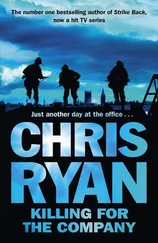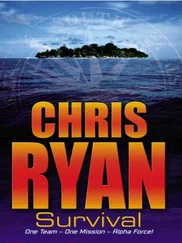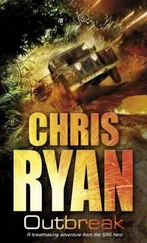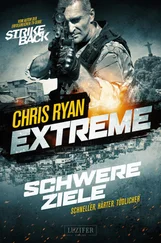He sensed Mac shrugging. ‘Dunno, mate. Just look like you’ve been sucking a lemon all day, that’s all.’
‘Just tired of schlepping to and from…’
‘Me too,’ Mac interrupted.
They sat in awkward silence.
The noise of the engines increased slightly and the aircraft gradually edged into movement. Sam could feel Mac’s gaze on him, but he stubbornly refused to return it. Normally in this situation he’d feel a sense of camaraderie. He’d want to talk to the guys, to feel comfortable with them. It was important. It would help grease the wheels in the field. But Sam felt totally unable to do it. He felt as alien to the squadron as they felt to the squaddies queuing up in the terminal building. With the others he could pretend. But with Mac… no. The man sitting next to him knew him too well. Mac would be able to see through any forced smiles or half-arsed banter.
The calm voice of the captain came over the loudspeaker. Sam barely heard it. He continued to stare out of the window as the aircraft turned on to the runway, accelerated sharply and smoothly rose into the air. The plane juddered as it hit the cloud line; Sam remained as still as a statue. Only when it was levelling off did he allow himself to turn back to Mac.
His friend was still looking at him. A thoughtful look. He opened his mouth as though about to say something and Sam felt his stomach lurch slightly. But Mac said nothing, having clearly thought better of it. When he did finally speak, it was not in the conversational tones of a friend. It was as a troop sergeant talking to one of his unit.
‘I’m going to do the rounds,’ he said. ‘Talk to the guys. We’re going in tonight. There won’t be much time at Bagram to rest up. You should get some sleep.’
Sam nodded, then looked away again. Mac didn’t move, though, so he turned back with one eyebrow raised enquiringly. His friend’s lips were pursed, his eyebrows narrow. He held out his hand and offered Sam a small white pill. Zaleplon – half the squadron would be taking them to blank out the boredom of the flight. ‘I mean it, Sam,’ he said quietly. ‘Get some sleep.’
Sam took the pill. He rolled it around thoughtfully in his fingertips. Mac was suspicious of something, that much was clear. Did he know? Did he suspect? Sam couldn’t tell. What was more, he was never going to find out while they were 30,000 feet up and surrounded by the rest of the squadron. And it was true. He could use some sleep.
‘Thanks, Mac,’ he said. He popped the pill in his mouth, swallowed it and pushed his chair back.
Unlike most people, Sam could sleep easily in an aircraft seat and that was exactly what he intended to do.
*
It was the pilot’s voice that woke him. He roused himself quickly from his deep, dreamless sleep. The Zaleplon had knocked him out, but also ensured that he woke up feeling alert. Outside it was dark and he could feel that the aircraft was beginning to lose height. Looking around, he saw that the rest of the guys were getting ready for landing, removing their hammocks and settling down in their seats. There was quiet in the cabin – the quiet of anticipation, broken only by the noise of the engines and now by the pilot’s announcement.
‘Gentlemen, we’ll soon be landing at Bagram. To conform with the current night-landing regulations in this operational theatre, we’ll be turning off all lights both inside and outside the aircraft. Please ensure your seatbelts are fastened and your luggage is safely stowed.’
As it always did, it struck Sam as faintly ridiculous that this instruction should be given to a bunch of guys who, only a few hours from now, would be hurling themselves from the back of a plane. But he checked his belt nevertheless.
The lights were switched off soon after that, plunging the cabin into pitch darkness. Looking out the window Sam saw that even the small wing lights were no longer flashing. Down below he could make out an occasional fire, evidence of a settlement in the arid expanse of northern Afghanistan. How many Taliban were out there, he wondered idly, mortars at the ready in the hope that they might see an ISAF forces aircraft in the sky and get lucky with a potshot? If that happened, they’d get to fall from a plane a bit earlier than they expected, so Sam was more than happy to go through the procedure of a blind landing.
Cloaked in that precarious blackness, with only the whining sound of the jet engines for company, Sam felt at once vulnerable and strangely comforted. Darkness suited him. Hid him. As a Blade he’d been taught to live and hide in the shadows, out on patrols, making himself unseen, always being the grey man. That was the drill – disguise yourself whenever possible, then close in on your target and neutralise it. That was really all he knew.
He heard the pilot’s voice, as calm and reassuring as if he had just delivered a planeload of holiday makers to the Costa del Sol.
‘Welcome to Afghanistan,’ he announced, as the plane turned from the runway and trundled towards the main terminal building of Bagram Airbase.
It was only Sam’s second visit to Bagram. Most of his previous ops in Afghanistan had been in Helmand Province, which meant a flight to Kandahar in the south before connecting to Camp Bastion a bit further west. But in the summer of 2006 he and three others had been assigned to a job guarding an Afghan politician with an unpronounceable name who, on the instruction of President Hamid Karzai, was making an under-the-radar deputation to a warlord in Parvan Province. He was an unlikeable man who treated the Regiment unit like his own personal servants. At least, he had on the way there. They had left Kabul in an armoured vehicle and as they approached the warlord’s village they had driven straight into an ambush. The unit had fought their way out of it and hotfooted back to Kabul, noses bloodied but no lives lost. The politician had wet himself in the middle of the firefight, though. He was a lot less bolshie on the return journey. The secret talks, of course, were never held.
Having been here once before, then, Sam knew what to expect. The large runway was surrounded by three big aircraft hangars. Various other support buildings – originally built by the Soviets during their occupation – provided a pretty basic level of facilities to the troops at the base, though lots of them were little more than empty shells, having been destroyed by warring Afghan factions over the years. The airfield itself was surrounded by the enormous, craggy, snow-topped mountains that characterised this part of the world, but these were obscured by the darkness as Sam and the rest of the squadron disembarked into the warm, dry air. Instead, all they could see were the bright lights and bustle of the airfield at work. The loadies had already started to unload their pallets of equipment and forklift them on to a truck, while the guys themselves were directed towards one of the hangars, outside which an American A-10 Thunderbolt was parked. The aircraft had a mouthful of shark-like teeth painted on its nose, from which protruded a 30 mm gun. Even though it was 11 p.m. and still swelteringly hot, a technician was hard at work on the undercarriage – he barely glanced at the men who, almost deafened by the roar of their own aircraft’s engines, walked past him and into the hangar.
It was a huge, cavernous space the size of a couple of football pitches. There were three aircraft housed in there, but hardly any people: just a British Army representative who ushered them in towards the right where an area had been walled off with some temporary partitions. Waiting for them was a man in regular civvies. He wore square glasses with titanium rims and had a tanned face that was beginning to show signs of age. His hair was black, though, with no sign of grey: it was impossible to tell how old this man was and his expression was similarly inscrutable. Sam remembered Whitely saying that a representative from the Security Service would be waiting for them. The moment he saw him, one word went though Sam’s head: ‘wanker’. The very sight of him filled Sam with a sudden, burning anger.
Читать дальше
